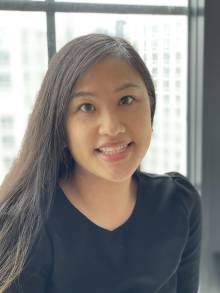Alice Wong
MPA in Public & Nonprofit Management & Policy
-
2016

Can you tell us a bit about your job responsibilities?
As Chief of Staff, I serve as a senior advisor to the President & Chief Executive Officer at the Chinese-American Planning Council (CPC). Founded in 1965, CPC’s mission is to promote the social and economic empowerment of Chinese American, immigrant, and low-income communities. Today, CPC is the nation's largest Asian American social services organization, serving 60,000 community members each year through over 50 education, family support, and community and economic empowerment programs across New York City. My responsibilities include working with the President & CEO on ensuring our four Board of Directors have what they need to set organizational strategy and are able to fulfill their fiduciary duties. I’m also proud to have been the project lead on our real estate project that enabled us to finally have a permanent headquarters. Being able to build our new home a couple of blocks away from where I grew up to help families like mine was meaningful. I’ve also had the privilege of leading our work to combat anti-Asian hate. Advocating for the Asian-American community has always been important to me.
What were you doing before you came to NYU Wagner?
My background is in politics and community engagement. I was working at the NYC Department of Education (DOE) for three years. As Deputy Senior Manager at the Division of Family and Community Engagement (FACE), I was helping to manage a team that worked with parent leaders. Under New York State Education Law 2590-C, different formal parent groups are embedded in the DOE with the goal of strengthening the relationship between NYC public schools, families, and communities for student success. We basically had to run a citywide election virtually, and then we had to make sure all the parent groups were in compliance with the State Education Law and that they were also receiving support as parent leaders.The State Education Law was new at that time so we implemented it for the first time while I was at the NYC-Department DOE.
Why did you choose NYU Wagner for graduate school?
What drew me to Wagner was the strength of the program. I intended to stay in New York City; this is the place I love and where I want to be in public service. My options were focused on public programs in New York City. I chose Wagner because I saw a real intent from the school to live its values of creating a community of people and train them to work with each other so that they could change the world for the better.
How did your experiences at NYU Wagner prepare you for your career?
They prepared me so much! What I really needed at that time in my career was to go back and spend some dedicated time understanding how public policy works, but also to give me the time to explore things and learn things that I didn't have an opportunity to do as an undergrad. It prepared me specifically for this job because it taught me to think in a new way, and I was able to apply the concepts I was learning to my professional experience. I still use what I learned at Wagner whether it’s how to frame a policy issue to the general public or how to facilitate an internal Leadership team meeting.
How did being in New York City impact your professional journey?
It comes with a specific network that may be helpful to some people, depending on their goals. Because of all New York City and Wagner has to offer, it’s really attractive to a broad spectrum of people which means my program was really diverse. Being able to learn best practices and listen to perspectives from people around the world was definitely helpful to my professional growth.
What advantages have you found to being a part of the NYU Wagner alumni network?
I believe Wagner personally supplies the talent pipeline to several city agencies! I am only half joking. It's a nice association to have, when you meet someone who has also graduated from the program. The friends that you make at Wagner are also incredibly important, the personal relationships I’ve made during my program are still with me to this day. Instead of group work, we all now serve as advisors to each other.
Credits: Interview conducted in April 2024 by Joshua Chun, an MPA-PNP 2025 student at NYU Wagner.